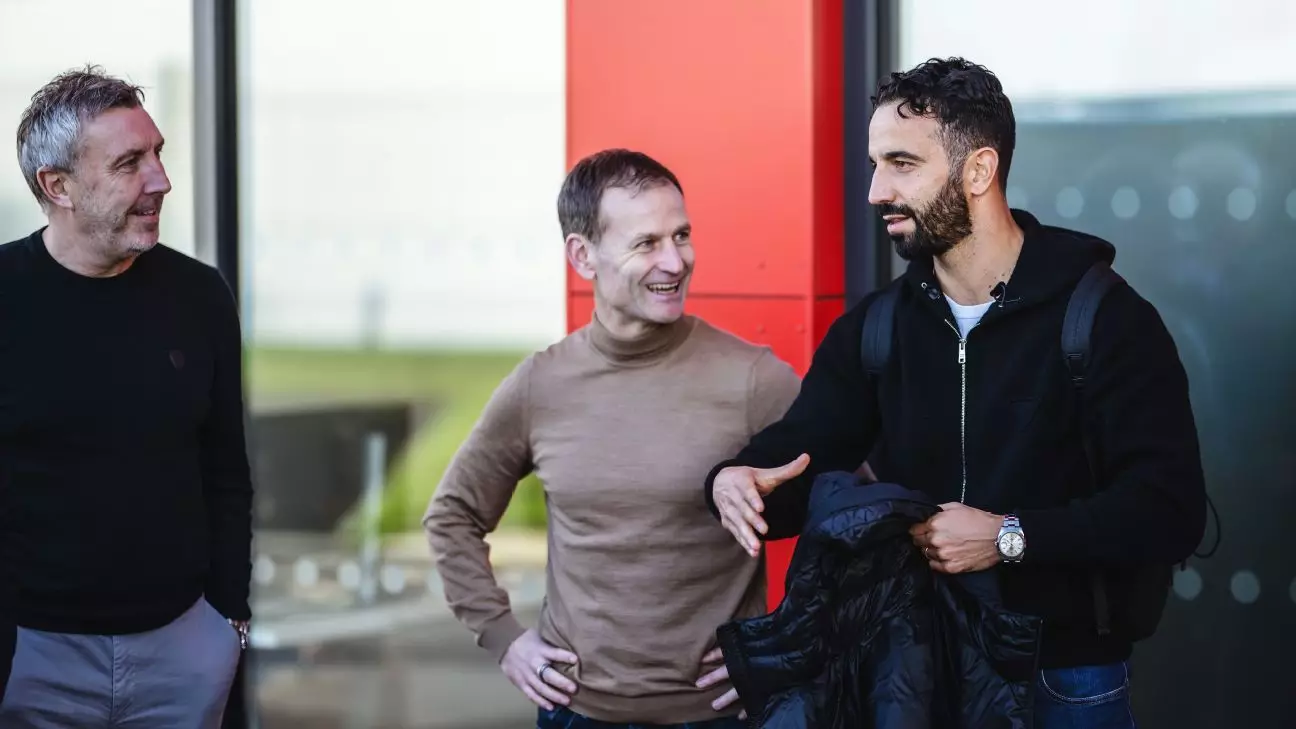Rúben Amorim has officially stepped into the highly scrutinized position of manager at Manchester United, a role that has seen five different individuals take charge since the legendary Sir Alex Ferguson’s retirement in 2013. Each predecessor, from David Moyes to Erik ten Hag, has grappled unsuccessfully with the mantle of reviving a once-great club plagued by inconsistency and disappointment. For Amorim, a mere 39 years old and recognized as one of Europe’s promising managerial talents, the challenge is formidable, but it’s one he has historically embraced head-on.
Amorim’s transition from Sporting CP, where he secured two league titles, to the chaotic swirl of Old Trafford is a task steeped in pressure. The former coach has assumed leadership with an admission of the uphill battle ahead, yet he exudes a conviction that he can shift the tides of a club that has felt the sting of failure for nearly a decade. Set to launch his managerial career with a fixture against Ipswich Town on November 24, it is already critical that he finds common ground between his football philosophy and the existing squad dynamics.
Amorim’s tactical proclivity leans toward a 3-4-3 formation, a structure he intimated he would pursue at United. This approach, successful at Sporting, presents a challenge given that the current roster has been primarily assembled with a 4-3-3 framework in mind. A fundamental shift in alignment may require players to adapt in ways they haven’t in the past. United boasts a surplus of six senior center-backs well-suited to Amorim’s triangle at the back, but wing-back roles will demand innovative repurposing of existing talents.
The immediate candidates for wing-back positions, such as Diogo Dalot, Luke Shaw, and Noussair Mazraoui, each bring unique strengths but also weaknesses that may surface as they are tasked with greater defensive responsibilities. Furthermore, could younger talents like Alejandro Garnacho and Amad Diallo be molded into hybrid full-backs, an idea that hinges on their growth under Amorim’s guidance? This reallocation of responsibilities might test their flexibility and discipline beyond their former roles.
Bruno Fernandes will likely continue as one of the attacking No. 10s, but the space available for a second playmaker could spark intense competition, especially for someone like Marcus Rashford. While Rashford has historically favored left-wing exploits, adapting to an interior attacking role would require a significant recalibration of his playing style. His reputation for occasionally shirking defensive duties could present complications, as Amorim’s setup will expect diligence off the ball.
One of the pressing issues that Amorim faces is the club’s striking inefficiency. When comparing United’s scoring under previous management to contemporary standards, the disparity is glaring. In his final season at the helm, Ten Hag’s team managed only 115 goals in the Premier League, a stark contrast to Manchester City’s impressive tally of 190. Amorim must identify and nurture a reliable goal-scorer to mitigate this perennial inadequacy.
Among the potential forwards, Rasmus Højlund and Joshua Zirkzee find themselves in a race against time to establish themselves as clinical finishers. While Højlund’s potential is evident, with an 18-goal record over 55 appearances, there remains an urgent need for improvement. Amorim’s prior success with Viktor Gyökeres at Sporting, transforming him into a prolific striker, lends hope that he can repeat that feat with Højlund. Finding a pathway to consistent goal-scoring could be the linchpin for Amorim’s ambitions at United.
As Amorim grips the reins at a club languishing in 13th position, the road ahead is laden with both risks and opportunities. His immediate objective should be to instill resilience and determination into a squad that has floundered at home, evidenced by six losses in 19 league games last season. Short-term victories, particularly at Old Trafford against weaker opposition, would not only bolster the team’s morale but also assist in creating an invincible atmosphere at home.
Fans have longed for a clear tactical vision—something that was sorely missing under Ten Hag. Amorim’s arrival and coaching style should aim to provide just that, fostering an identity that resonates with the storied history of Manchester United while simultaneously adapting to the rigors of the Premier League. If Amorim can achieve a swift turnaround by articulating a recognizable game plan and garnering results, he may very well be the catalyst for the revival that both the team and its supporters have yearned for.

Leave a Reply